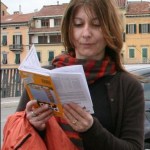Education
Regular readers know that I have a tendency every so often to whine about when writing about the antics of the anti-vaccine movement seems to engulf this blog. Yes, it's true. Every so often I get really, really tired of the bad science, pseudoscience, magical thinking, misinformation, and even outright lies that emanate from various anti-vaccine websites and blogs. This week, I promised myself I would try not to do it. There are times when duty calls, and this is one of those times. For better or for worse, as hard as I still find it to believe, somehow I've become one of the top bloggers…
One of the things that bothered me about the 'stimulus' bill (other than it not being called an employment bill) is that there was a focus on things being 'shovel ready.' Not only did this imply that the depression* would be short-term (whereas un-, underemployment, and flat wages are largely ongoing structural problems), but 'shovel ready' also implied that keeping state and local budgets stable--not laying people off and cancelling orders with private contractors--was out of bounds (thanks Senator Nelson!). Atrios sums it up well:
I'm personally a bit tired of hearing about all of the…
Tomorrow morning at the Howard Hughes Medical Institute, I will be addressing the annual conference of the University Research Magazine Association. I have pasted the text of my prepared remarks below with relevant links embedded. I will post a follow up on Friday highlighting questions, comments, and reactions. Readers are strongly encouraged to weigh in with their own reactions.
As professional science communicators and journalists, you are living in an era of convergence between two major trends in society.
The first trend is a dominant focus of this conference: Technology, audience…
Part 2 of your recollections of the May 18, 1980 eruption of Mount St. Helens.
You can read Part 1 here.
You can also check out an amazing set of satellite images spanning 1979-2010 at the NASA Earth Observatory. Great stuff!
-------------------------------------------------------------------------------------------------
Eruption plume from Mount St. Helens on May 18, 1980. Image courtesy of the USGS/CVO.
Peter Carlton
My sister and I were playing in our backyard in West Seattle when we heard the boom. I was 6 years old. I remember lots of phone calls with our relatives in Yakima, watching…
"I don't want knowledge. I want certainty!"
--David Bowie, from Law (Earthlings on Fire)
If there's one universal trait among humans, it seems to be an unquenchable thirst for certainty. This should come as no surprise to those committed to science and rational thinking because there is a profound conflict between our human desire for certainty and the uncertainty of scientific knowledge. The reason is that the conclusions of science are always provisional. They are always subject to change based on new evidence. Although by no means the only reason, clearly this craving for certainty the…
Reposted from last year:
Michael Posner and Brenda Patoine make a neuroscientific case for arts education. They argue that teaching kids to make art has lasting cognitive benefits:
If there were a surefire way to improve your brain, would you try it? Judging by the abundance of products, programs and pills that claim to offer "cognitive enhancement," many people are lining up for just such quick brain fixes. Recent research offers a possibility with much better, science-based support: that focused training in any of the arts--such as music, dance or theater--strengthens the brain's attention…
John Dupuis comments about a review of This Book is Overdue, saying that libraries' roles in their institutions are not well understood by others in the institution because of inherent insularity in academe - silos, in effect. Drug Monkey basically sees the library as infrastructure. When I say infrastructure, I mean the SL Star (RIP) and Ruhleder (1996) version:
Embeddedness. Infrastructure is "sunk" into, inside of, other structures, social arrangements and technologies;
Transparency. Infrastructure is transparent to use, in the sense that it does not have to be reinvented each time or…
One of the biggest examples of either self-delusion or lying that emanates from the anti-vaccine movement is the oh-so-pious and indignant denials that inevitably follow from its members and leaders whenever someone like me has the temerity to point out that they are, in fact, anti-vaccine. The disingenuously angry denials usually take a form something like this, "I'm not anti-vaccine; I'm pro-safe vaccine." (This is Jenny McCarthy's favorite variant of this gambit). Another variant is for anti-vaccine activists to claim that they aren't anti-vaccine at all; they're just "concerned" that…
It is somewhat hard to grok how much a Big Deal the WWW2010 conference is when it's happening in one's own backyard. After all, all I had to do was drop the kids at school a little earlier each morning and drive down to Raleigh, through the familiar downtown streets, park in a familiar parking lot, and enter a familiar convention center, just to immediately bump into familiar people - the 'home team' of people I have been seeing at blogger meetups, tweetups and other events for years, like Paul Jones, Ruby Sinreich, Fred Stutzman, Ryan Boyles, Wayne Sutton, Kim Ashley, Henry Copeland and…
The Toronto Charter for Physical Activity
As many of you know, I spent last week attending the 3rd International Congress on Physical Activity and Public. It. Was. Awesome! I've been to 5-6 conferences since I started grad school in 2006, and they've all been good experiences, but this one was by far the best. And of the more seasoned researchers that I've spoken to, they all seem to rank it among the best they've attended as well. Unfortunately I wasn't able to liveblog the conference as I'd hoped (the wifi was pricier than I'd expected) so I thought I'd recap…
I'm honestly undecided about Elena Kagan's nomination to the Supreme Court. She's got a distinguished record of legal service and scholarship, though few publications to document her views. Larry Lessig likes her, Glenn Greenwald doesn't. At the end of the day, President Obama likes her, and the general sense is that the Senate will like her well enough. She'll be confirmed, becoming the 3rd woman on the current Court, and the 4th ever to serve on the nation's highest court. Maybe Diane Wood will get the nod next time.
There's been some obnoxious nosecounting about her religious views,…
One difference between reading Open Laboratory anthologies and reading the original posts included in them is that the printed versions are slightly edited and polished. Another difference is that the Prefaces and Introductions can be found only in the books. They have never been placed online.
But now that four books are out and we are halfway through collecting entries for the fifth one, when only the 2009 book is still selling, I think it is perfectly OK to place Prefaces and Introductions that I wrote myself online. I wrote Prefaces for the 2006, 2007 and 2008 book, as well as the…
My semester in MIT's course on Documenting Science Through Video and New Media has drawn to a close. I've had a wonderful time and learned a lot about how films and science are constructed by different people in different times for different reasons. Most of all I've learned about how challenging it can be to put together an interesting narrative and present a point of view while at the same time ensuring that the science being explained is honest and clear to everyone. I've recently gotten the chance to watch two great recent science documentaries outside of class, Naturally Obsessed and…
Continuing with the tradition from last two years, I will occasionally post interviews with some of the participants of the ScienceOnline2010 conference that was held in the Research Triangle Park, NC back in January. See all the interviews in this series here. You can check out previous years' interviews as well: 2008 and 2009.
Today, I asked Jelka Crnobrnja-Isailovic from the University of Belgrade, Serbia, to answer a few questions.
Welcome to A Blog Around The Clock. Would you, please, tell my readers a little bit more about yourself? Where are you coming from (both geographically and…
Massimo Pigliucci has written a book, Nonsense on Stilts: How to Tell Science From Bunk(amzn/b&n/abe/pwll), that actually sounds very interesting — it takes a strong skeptic's approach to truth claims. What really makes it sound worth reading, though, is a review by Carlin Romano that pans it, Pigliucci, and a whole great legion of scientists irritated with the public endorsement of nonsense: Romano complains that we're on "ego trips." Why? Because Pigliucci expresses such strong certainty about the conclusions of science.
Here's the heart of the review. It's a lot of aggravating piss-…
Clive Thompson nails it when he describes the importance of statistical thinking (italics original; boldtype mine):
Statistics is hard. But that's not just an issue of individual understanding; it's also becoming one of the nation's biggest political problems. We live in a world where the thorniest policy issues increasingly boil down to arguments over what the data mean. If you don't understand statistics, you don't know what's going on -- and you can't tell when you're being lied to. Statistics should now be a core part of general education. You shouldn't finish high school without…
After just under 4 years, my PhD has finally come to an end. The congratulatory emails, phone calls, blog comments, FB and Twitter messages have been rolling in steadily - I thank you all for the kind words, and will try my best to respond to everyone personally in due time.
As Travis briefly explained yesterday, the defense went off smoothly despite my nerves. I was asked quite a number of questions (many more than during my Master's defense), but my committee members were all very friendly and polite so I felt pretty comfortable during the question and answer period. All the questions and…
A reader writes:
I was in a PhD program in materials science, in a group that did biomedical research (biomaterials end of the field) and was appalled at the level of misconduct I saw. Later, I entered an MD program. I witnessed some of the ugliest effects of ambition in the lab there.
Do you think biomedical research is somehow "ethically worse" than other fields?
I've always wanted to compare measurable instances of unethical behavior across different fields. As an undergraduate I remember never hearing or seeing anything strange with the folks that worked with metallurgy and it never…
I decided, since there are many, to put them under the fold now. But you should check them out - some excellent, thought-provoking stuff:
Journalism is not a zero-sum game
If you think the web is useless, make it useful. If you think Wikipedia is full of errors, correct the ones you find, or shut up. If you think the web only consists of ill-informed echo chambers, get in there and add an informed view.
Along the way, you might just find that there are hundreds of thousands of people doing exactly the same thing.
Guest Post: Energy Ministers of the Americas Come Together in D.C - State…
Why IS Science Cool?
Have you ever pondered that question? Ever want to tell the world why you think that Science is Cool? I think science is COOL because through science I can find the answer to my hundreds of questions of why? Why is the sky blue but sunsets have colors? Why don't birds fall out of the sky? Why doesn't silly putty stay in the shape I put it? I love the question why and LOVE that I can find many of these answers through science and if I can't find the answer? I know I can set up an experiment to try to figure it out!!
Now YOU have the opportunity to answer that burning…

